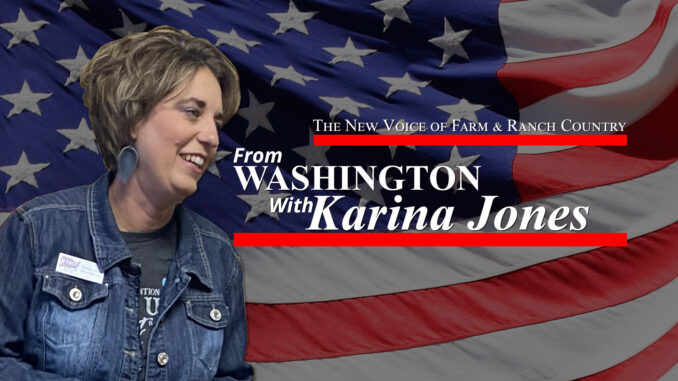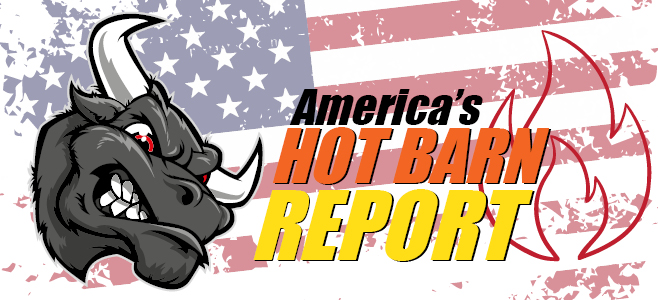

From Washington with Karina Jones is brought to you by BillionAuto.com one of the nation’s largest automotive websites!
Karina Jones is a real-life ranch wife in the Nebraska Sandhills, Field Director for R-CalfUSA and one of the most highly sought-after speakers in the cattle industry nationwide!
And now the NEW VOICE of Farm & Ranch Country, Karina Jones –
Good day everyone out there in farm and ranch country!
This week there was a hearing in the House Judiciary Committee which you can watch for yourself at the House Judiciary committee website or YouTube channel. It sure caught my attention!
The hearing was titled, “Where’s the beef? Regulatory barriers to entry and competition in meat processing.” The hearing was led by committee chair Representative Thomas Massie, a Republican from Kentucky, who has been a bulldog on deregulating the beef processing sector to allow easier transaction flow between cattle producers and consumers. Massie knows this chokehold that burdensome regulation has on limiting the kinds of transactions that can occur between cattle producers and consumers, based on the processing plant where cattle are harvested, because he, himself, is a cattle producer that deals with this frustration.
The panelists on this topic were excellent, giving firsthand accounts as both food producers and operators of small processors. They were Greg Gunthorp, Joel Salatin, and Rosanna Bauman. Their real-life stories of dealing with USDA inspectors seemed to defy even the lowest levels of common sense and left me wondering does the USDA really even care about local food systems?
There seemed to be a common understanding among most of the lawmakers in attendance that they agreed with the problems that were highlighted by the panelists. But true to any problem that runs through Washington, lawmakers seemed split on the solution.
Some lawmakers want to tackle this through the channels of tougher anti-trust enforcement which seems logical. But we must remember that the US government has been failing miserably at that for decades, so I’m not sure what new laws would strengthen that option. Other lawmakers want to cut the government red tape and let producers and consumers have open transactions without the federal government restricting the movement of meat depending on the kind of processing plant it was harvested in. That would the Massie introduced PRIME Act!
When Joel Salatin was posed the question about meat safety concerns with the PRIME Act, I thought his response made more sense than anything any lawmaker had to say all day.
Mr Salatin answered, “Safety is quite subjective. I think a lot of people do a lot of things that are unsafe like drinking 3 cokes a day. 50 kids drowned in backyard swimming pools last year which is more than was hurt by any meat problems, but we aren’t filling in backyard swimming pools. You choose your risk. The beauty of the PRIME Act is it creates parallel competition based on voluntary consensual choice among adults to opt out of a system. The PRIME Act allows a competitive free market option that will then create accountability within the system.”
I agree totally! Why is it safe for my friends to purchase a ½ a beef from me that was processed in a custom exempt processing plant but if I sell them a pot roast from that same animal, processed in that same plant, I am now violating a federal law and can face punishment.
Is that really about safety? Or is that about control and limiting market access?
Join me right back here next week for more ag news from our nation’s capital.

Karina ranches with her husband, Marty, and 4 children near Broken Bow, NE. She grew up in western NE, with roots also in southwest SD. The cattle industry and raising kids is her passion.
Tune in Fridays on The Hot Barn Report, where she deep dives into cattle industry issues and highlights industry reforms or listen to Ranch Raised with Karina Jones a slice of daily life on the Jones Ranch.







